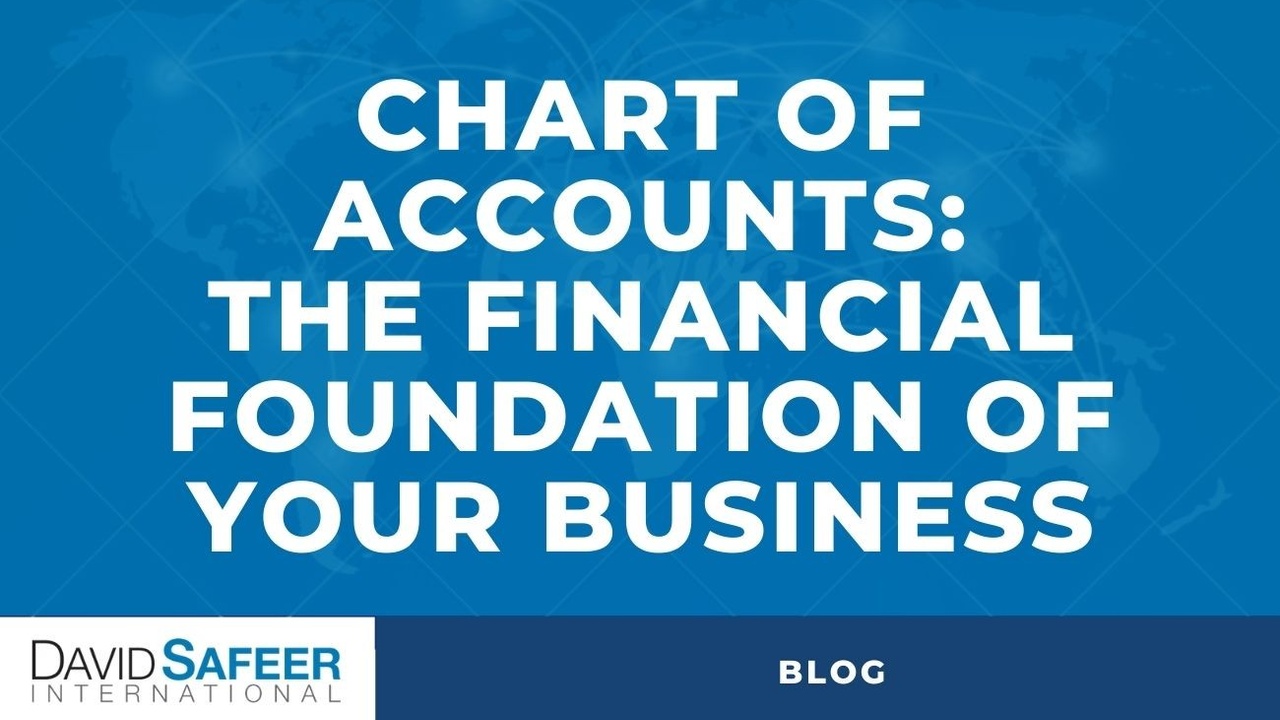What's the Story Your Business Tells?

Each company is unique. Your company is unique. So why use a generic chart of accounts?
Think about the story you want your reports to tell, then structure your chart of accounts, classes of business, items, and everything else that you can possibly configure in the software, to get reports personalized for your
business’s needs.
Some ideas for structuring your chart of accounts and configuring your software:
- Track multiple revenue streams from product types or client segments
- Identify key expenses of delivering goods and services to your clients
- Know your profitability by client, product, revenue source, lead source
The possibilities are endless, so focus on what are the most important factors that ensure your business will succeed. Those factors are what you want to build your record-keeping and reports around.
What’s the story you want to know about your business?
E-mail me your comments at [email protected]
Chart of Accounts: The Financial Foundation of Your Business

Most business owners' eyes glaze over when I talk to them about the "chart of accounts."
Then we talk about what they are trying to understand about their business's finances. They generally want the same thing:
- How much money am I making?
- How do I know if I'll have enough money to pay the bills?
- Which products and services make the most money?
- Do I have extra expenses that I can cut?
- Do I have enough capital to grow?
When I explain that the chart of accounts is the foundation for understanding each of those questions, they get more interested.
I explain that the chart of accounts is a list of categories.
Then I tell the business owner:
• Where sales come from
• Where expenses go
• What the assets are (what's owned)
• What the liabilities are (what's owed to others)
• What the difference is between what's owned and what's owed. This is called the “equity” in a company.
They quickly understand that with the right chart of accounts they can get all the reports they need to understand their ...
How to Do Bookkeeping for Cash Management Success

Readers of my article “7 Proven Steps to Manage Your Cash with Ease” asked for more details.
In case you missed that article, or need a reminder, here are the steps.
1. Do Your Bookkeeping for Cash Management
2. Find Cash in Your Business
3. Make Quick Fixes
4. Work on the Big Cash Management Ideas
5. Forecast Your Quickly and Easily Cash
6. Manage Your Cash
7. See Your Results on a Dashboard
This article is an overview on how do set up your bookkeeping for cash management success.
Instead of a checklist or a “how to” article, I will tell you how a client (Rebecca) and I cleaned up the her company books. The company is “The Spa,” a high-end day spa.
(The method is from a real client, but the name and type of company are different to maintain anonymity.)
The End in Mind
Rebecca was stuck at about $3 million in sales. Her biggest concern was running out of cash, even with a big credit line and healthy profits. 2-3 times a month she was almost out of money. She was losing sleep ...
10 Cash Flow Management Habits Every Business Owner Must Have

Business owners with good cash management habits are more likely to have a growing, successful business. They have more control over their business’s cash and more time to grow their business by focusing on their business’s unique value-added products and services.
Here are ten (10) habits you can adopt to help put your business on cash management auto-pilot.
The 10 Cash Management Habits
- Maintaining up-to-date bookkeeping
- Keeping accurate books and records
- Structuring a chart of accounts for meaningful reports
- Measuring the impact of increasing sales
- Using cash management tools
- Working with a cash management dashboard
- Addressing cash shortages immediately
- Spending regular, focused time on cash management
- Maintaining a positive attitude
- Asking for help when needed
Habit 1: Maintaining Up to Date Bookkeeping
Up-to-date bookkeeping is critical for knowing where your cash is, where more cash is coming from, and where it needs to go. In other words: bank balances, ac...

